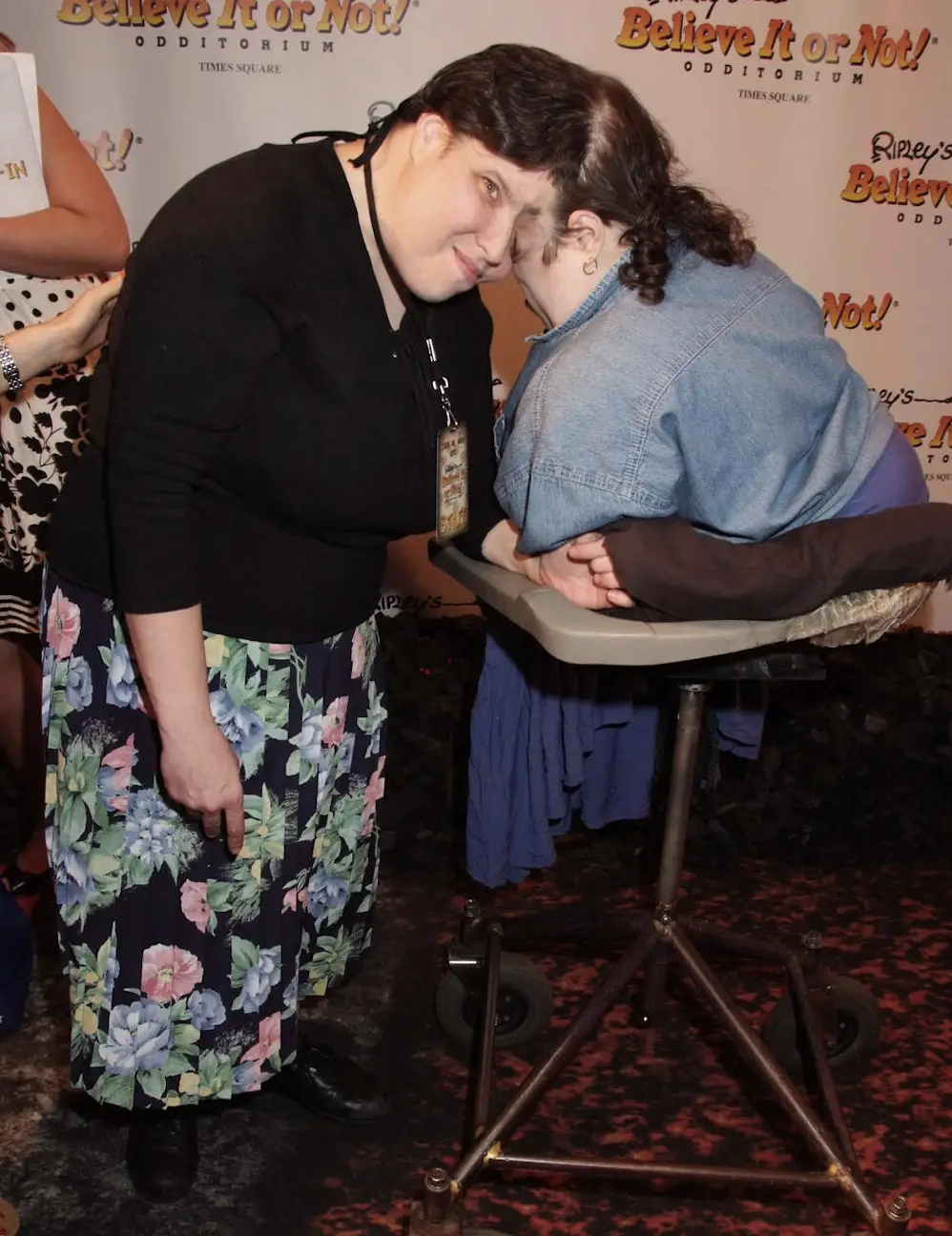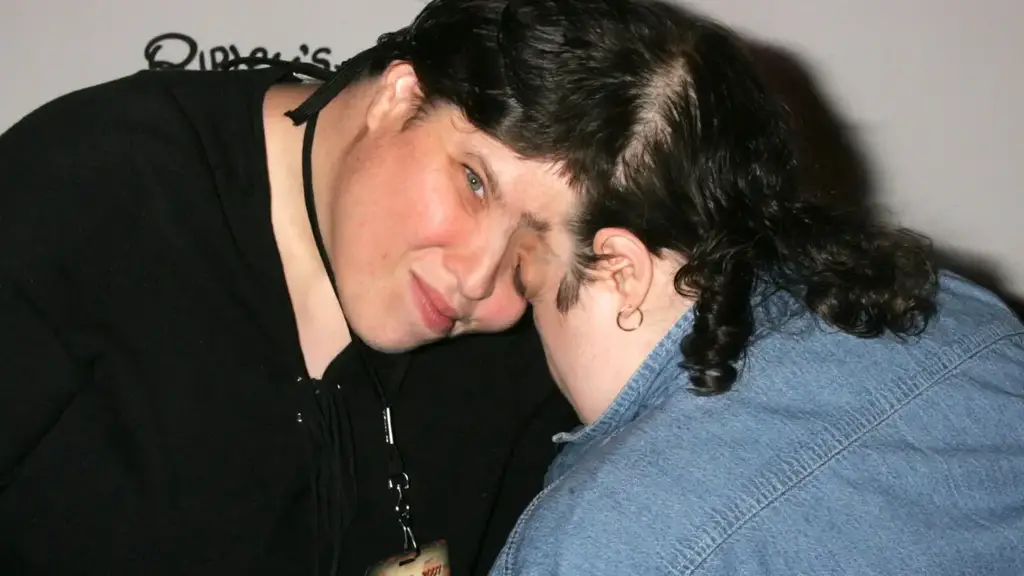George and Lori Schappell, recognized globally as the oldest conjoined twins, have passed away at the age of 62.
Hailing from Pennsylvania, USA, the twins were connected by their partially fused skulls and shared essential blood vessels along with 30% of their brain tissue, according to Guinness World Records.
The duo surpassed medical expectations by living well beyond their thirties, each forging successful careers and following their unique interests. George pursued his passion for music and became a country singer, whereas Lori excelled as a trophy-winning bowler in ten-pin bowling.
Their deaths were recently confirmed, marking the end of their inspiring journey.
The pair gained additional media attention when George, previously known as Dori, transitioned and identified as a male in 2007, making them the first same-sex conjoined twins with different gender identities.
In a revealing conversation with The Sun, George shared his long-concealed truth. “I have known from a very young age that I should have been a boy,” he explained. “I loved playing with trains and hated girly outfits. I kept my desire to change sex hidden – even from Lori – for many years.”

Lori expressed her unwavering support for her brother following his transition. “Obviously it was a shock when Dori changed to George, but I am so proud of him. It was a huge decision but we have overcome so much in our lives and together we are such a strong team. Nothing can break that,” she said.
The siblings were featured in multiple documentaries and television programs, sharing insights into their lives. In one documentary, when asked about the possibility of separation, George firmly responded, “Absolutely not. My theory is: why fix what is not broken?” Lori echoed his sentiment in a statement to the Los Angeles Times, “I don’t believe in separation. I think you are messing with God’s work.”

George and Lori Schappell led remarkably distinct lives despite their physical connection. They resided in a two-bedroom apartment in Pennsylvania, maintaining individual lifestyles and interests. Lori, who was able-bodied, often helped George, who suffered from spina bifida.
George highlighted the public’s fascination with their daily lives. “It’s the little things that intrigue people the most,” he noted. “I don’t drink but Lori loves a vodka and orange occasionally. She can feel terrible with a hangover and I’ll feel absolutely fine as our bodies are completely separate.”
Lori shared her thoughts on personal space despite their condition. “Just because we cannot get up and walk away from each other, doesn’t mean we cannot have solitude from other people or ourselves.”
The siblings had also addressed misconceptions about their survival if one were to pass away. “No, it would not. That’s another misconception,” Lori clarified in a documentary, with George adding that emergency separation could potentially save the surviving twin.
George and Lori passed away at the Hospital of the University of Pennsylvania on April 7, as noted in an obituary by Leibensperger Funeral Homes. Their cause of death was not disclosed.
They are survived by their father, six siblings, numerous nieces and nephews, and a large circle of friends and extended family.

